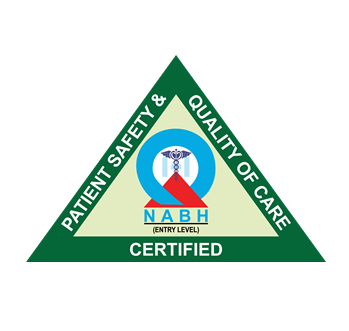
How to Differentiate Between a Normal and a Neurological Headache
Headaches are an issue that virtually everyone experiences at one point or another. It can range from subtle discomfort, an ache, to much more severe pain brought on by stress or lack of rest. In most cases, headaches resolve on their own over time. What we refer to as “normal headaches”
However, there are instances in which head pain may arise as more than an inconvenience. It can indicate some underlying issue, in which the problem may pertain to the head, brain or the nervous system. That is when the term “neurological headache” comes into play. It is crucial to know the difference, especially if the pain is persistent, suddenly worsens, or is accompanied by strange symptoms.
Let’s look at how to identify the difference, when to be concerned, and what the possible next steps are.
What is a Normal Headache?
A normal headache is a condition that is painful to the touch and is triggered by stress, lack of proper and sufficient sleep, not drinking enough water, hunger, and eye strain. Rest, drinking water, and simple pain relievers usually do the trick to heal these headaches. Mild to moderate in nature, these headaches can be addressed quite easily.
Attributes include:
- Tight, dull, or pressing feelings spanning over both the forehead and the scalp
- Typically bilateral
- Not linked to other neurological signs or symptoms
- Comes and goes with certain triggers
- Resolves with rest and/or over-the-counter pain relievers
The most common forms of normal headaches include tension and mild sinus headaches. Normal headaches do not significantly affect one’s daily routine for an extended period.
What Is a Neurological Headache?
A neurological headache could indicate a problem with the brain, nerves, or spinal cord. Neurological headaches could be the result of underlying conditions such as brain tumors, strokes, infections, aneurysms, or diseases like Parkinson’s, multiple sclerosis, or epilepsy.
Neurological headaches, unlike normal headaches, are often accompanied by other symptoms such as confusion, visual changes, or weakness in the arms and legs.
Warning Signals You Should Never Overlook
In case you—or someone you know frequently gets headaches but suddenly starts experiencing headaches that are different somehow, then you need immediate medical attention if it comes with any of the following symptoms:
- Sudden, debilitating headaches (compared to previous ones, the worst ever experienced)
- Any distortion of vision: blurred, double vision, or loss of vision
- Numbness or weakness on one side of the body
- Threatening speaking: Difficulty speaking, or confusion accompanied by slurred words
- Seizures
- Breach of the norm consciousness: Loss of consciousness or fainting
- Continuous vomiting
- Changes in Personality
- Neck that is stiff, especially with fever (could suggest meningitis)
These are possible indicators of a neurological headache and need prompt attention or treatment.
What is the Method of Diagnosing Neurological Headaches?
Like many other hospitals, East Point Hospital prioritises timely and precise diagnosis. The steps in the approach commonly involve the following:
- Recording of the Medical History and the Symptoms
The physician is going to be inquiring about the same of the headaches coming, going, to and fro, lip sync, location, triggers, and other associated symptoms.
- Neurological Examination
The neurologist is going to be assessing some reactions, some muscle strength, some balance, vision, and coordination.
- Imaging Tests
In order to pinpoint psychological and nerve concerns in a person’s brain:
- MRI Scan – Detects an existing psychological concern like a tumor, stroke, or inflammation by rendering images of the brain.
- CT Scan – Detects bleeding, swelling, or the existence of any fractures.
- EEG – Recommended in cases where the patient might have seizures.
- Blood Tests or a Lumbar Puncture
Used to identify any infections or inflammation of the brain, such as meningitis or encephalitis.
Common Neurological Conditions That Cause Headaches
- Migraine with aura
- Brain tumors
- Hydrocephalus (buildup of fluid in the brain)
- Aneurysm
- Chiari malformation
- Trigeminal neuralgia
- Intracranial hypertension
- Multiple sclerosis
Why Early Action is Important
For a person with a neurological headache, ignoring it can mean roaming with no diagnosis and risking the illness progressing. Some conditions, like brain tumors and aneurysms, are critical and need to be treated immediately, while others need sustained neurological attention.
Here, in East Point Hospital, the treatment of patients is done with a team of neurologists, neurosurgeons, and rehabilitation therapists. This is good practice as different specialists can offer precise diagnosis and a collection of careful treatment strategies which ensure the patient receives complete attention.
Treatment Options
Based on the specific reasons hypersensitivities occur, treatments could be:
- Medications to take care of inflammation (or even migraine or some other infection) inflammation, pain associated to injury, or to the inflammation or injury caused.
- Surgery to correct, remove or alleviate the effects of tumors, fluid pressures, triglycerides, and aneurysms.
- Physiotherapy, rehabilitation, and exercises when there are problems with movement and balance.
- Changes in daily schedules like improvement in sleeping, proper nutrition and hydration, and position maintenance and correction.
- Support in stress management, counselling, and psychosocial rehabilitation for chronic tension or post-traumatic headache.
Frequently Asked Questions (FAQs)
Q1. Are headaches associated with movement problems like Parkinson’s disease?
Yes. Individuals diagnosed with Parkinson’s disease or other movement disorders may suffer from certain types of headaches referred to as neurological headaches, more so if some specific areas of the brain are involved. Sometimes, medications used for these disorders may also cause headache or worsening of headaches.
Q2. What are some advanced therapies available for movement-associated neurological disorders?
Advanced therapies are now available for the management of tremor, stiffness, or spasm with the use of Deep Brain Stimulation (DBS), Stereotactic Radiosurgery, and Botulinum toxin injections, especially in advanced stages of Parkinson’s, dystonia, or essential tremors.
Q3. Is it possible to prevent neurological headaches?
Some types, like migraines and trigeminal neuralgia, tend to respond well to medications, lifestyle modifications, and avoiding particular triggers. An early diagnosis, along with appropriate interventions and tailored treatment strategies, greatly improves the prognosis.
While the vast majority of headaches do not pose any significant danger, the neurological subtype of headaches may indicate severe underlying problems which, if left ignored, could potentially be very serious.
Heed warning signs like changes in headache patterns, accompanied symptoms, and persistence. With early intervention and the right diagnosis and treatment, outcomes can be very favourable.
For residents of and those travelling to Bangalore, the good news is that specialised and expert services in neurology and headache disorders are offered at East Point Hospital, which eliminates the need to suffer in silence and uncertainty.


